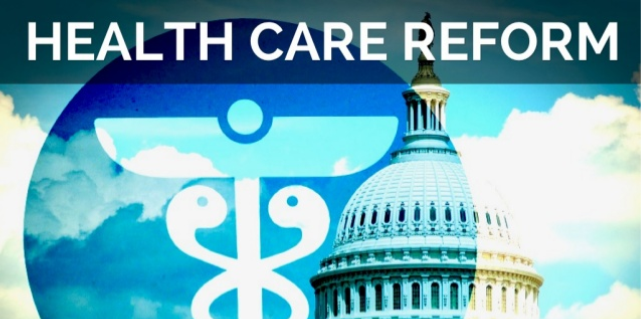Health care reform?
I don’t know about you, but I have yet to see anything remotely resembling health care reform in ObamaCare. What I do see is a waste of resources and a continuation of the same old broken health care thinking that only leads to more disease, more illness, and more expense.

The crazy thing about all the hoopla surrounding the health care debate is that the way we approach health care has to change.
Really, it HAS to change. Either we change our health care system or we are going bankrupt.
The Need for Reform
The need to overhaul the health care system is greater than you might imagine. The reason for this is twofold: demographics and cost.
The Baby Boomers are just now approaching retirement age and the population shift is truly unprecedented. To get an idea of just how unprecedented, take a look at the population 100 years ago. In the early 1900s, the number of people who were over 65 years old was only 3.1 million (or 4 percent of the population); today that number is 35 million (or 12 percent of the population). That number is expected to double by the year 2030 reaching 71 million (or 20 percent of the population).
The over-sixty-five population growth is not too much of a concern until you realize that most of these boomers need some form of health care. The older we get, the more the health care expenses we have.
Money and Health
We can pretend that ObamaCare will fix the health care problems, but it won’t. What both sides of the debate fail to realize is that the health of the individual is intimately tied to the amount of money that will be spent on the individual.
For example, it costs about $50,000 dollars to care for a diabetic throughout their lifetime. While that doesn’t sound like too much, the United States spent an estimated 132 billion dollars in 2002 to pay for diabetic expenses.
And those are just the expenses associated with diabetes and not other chronic conditions such as heart disease, cancer, or obesity.
It is the boomers, again, who are spending most of that money. A sixty-five-year-old with a serious chronic illness spends $1,000–$2,000 more per year on health care than a similar adult without the condition.
The total expenditures for health care in the United States for 2004 were 1.9 trillion dollars. While it is hard to grasp how large this number is, it equates to over $6,000 per person living in the United States. Currently, this spending on health care accounts for 16 percent of the gross domestic product (GDP). By 2014, the total expenditures on health care are expected to hit 4 trillion dollars, meaning that one out of every five dollars in the United States will be spent on health care.
Think about that. One fifth of all expenditures will be health care related.
For comparison, Canada currently spends 9.6 percent of its GDP on health care, with the United Kingdom only spending 7.7 percent; our closest competitor is Switzerland, who spends around 11 percent.
Are we healthier for all these expenditures? While this is a hard thing to measure, a recent article in the Journal of the American Medical Association compared the health of Americans versus the British. While our per capita expenditures are more than twice ($5,274 per capita in the US vs. $2,164 in the United Kingdom) Americans are still not as healthy as their British counterparts.
The study compiled national survey data on health and lifestyles of people aged 40 to 70 and found that US citizens aged 55 to 64 were twice as likely to be diabetic, have high blood pressure, suffer from heart disease, and have nearly double the risk of cancer.
Americans, the study concluded, also have higher rates of heart attacks, stoke, and lung disease when compared to the British. Clearly, our health care dollars are not getting us what we want: better health.
Real Health Care Reform
If we are going to truly reform health care we are going to have to create a true health care system.
How do we do this?
What if we remember that health and money are intertwined and pay people to be healthy?
While this sounds a bit crazy, we do this kind of thing all the time. Taxes are the primary influence of people’s behavior. If we want more alternative energy, we offer tax incentives. If we want companies to hire more people, we offer tax incentives to companies.
Most of our health care dollars are going to diabetes, cancer, heart disease and complications from obesity. What is amazing about all of those conditions is that they are all mostly avoidable if we eat right and exercise.
So imagine a health care system where emergency health care is free and available to anyone. If you get in an accident or otherwise injure yourself, you are taken care of. But, if you have heart disease, diabetes, or some other chronic condition, you have to pay for that.
In this system, your insurance premiums are adjusted to how healthy you are. How do we determine your health? We do this by seeing how much you weigh as compared to your height; we measure your cholesterol, your blood pressure and your blood sugar. From these measurements, we determine your insurance premium; high cholesterol, blood sugar and blood pressure increase your premiums.
All of these parameters of health are measurable and modifiable through simple dietary changes. In addition, we give people the tools that they need to change those parameters and get healthier.
By motivating people through their pocketbook, we can radically change the way health care is provided and reduce expenses because people will be healthier.













This is a fantastic, It is glad to see this blog, nice informative blog, Thanks for share this article.